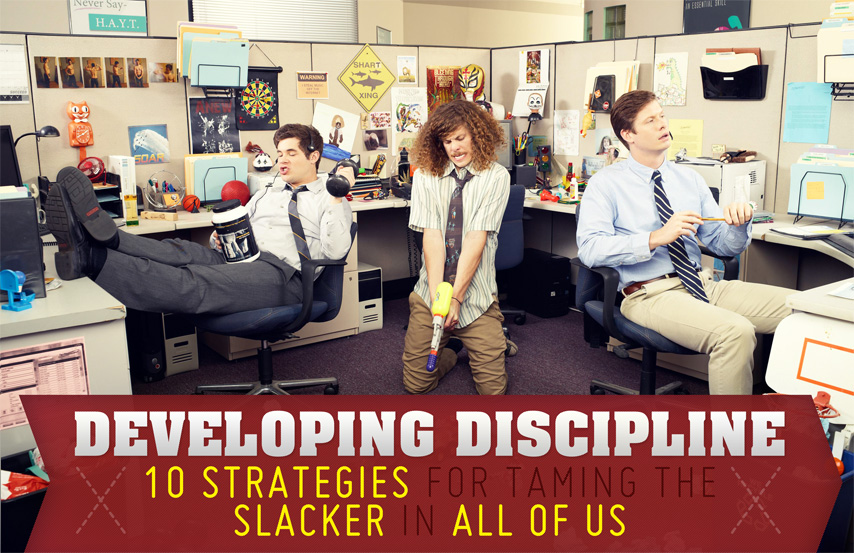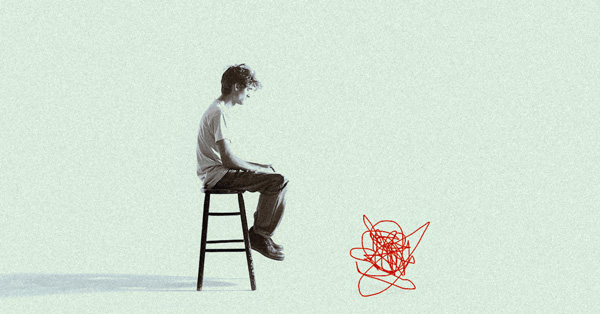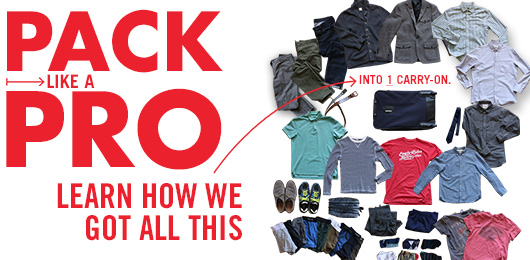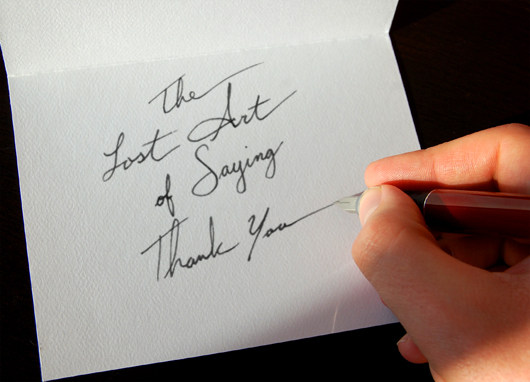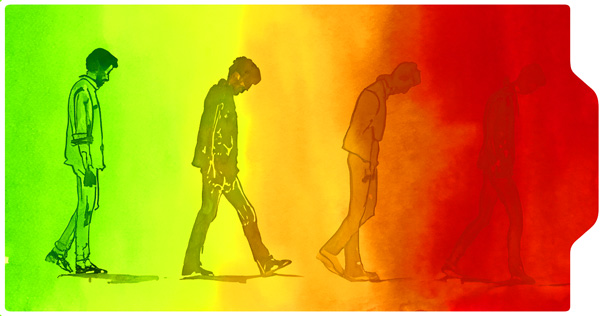Slacking off has become a new American pastime. People like Kevin Smith and Seth Rogen have built careers out of characters like this. However, for the most part, the rest of us can't really get away with doing as little as humanly possible. That's why we need to light the proverbial fire under ourselves and master the dying art of personal discipline.
Unfortunately, the line between saying it and doing it is a pretty hard one to cross. Thankfully, there are a lot of things that you can do to help you along the path to being a more disciplined and productive person:
1. Make Lists
It's easy to say you need to do something, so easy in fact, you'll keep saying it (without actually doing it) until the sun supernovas. When you write out a list of things you want to do and have it staring you in the face, it makes it a lot more difficult to simply put off what needs to be done, since seeing it will usually incite a certain pang of guilt that will encourage you to get off the couch and get moving.
Write down some chores and put them some place you'll see them frequently, like the fridge door or the coffee table. (Also, this might be one situation where having an app for that might not be so useful, since it makes it easier to ignore the list in question by never opening the thing. In this case, having an actual physical list somewhere it's impossible to ignore will be much more effective.)
2. Break up Larger Tasks
A big reason people put off doing things is the perceived size of the tasks. If something looks like it's going to take forever to finish, it's usually really easy to put it off indefinitely. However, by breaking a task down into its smaller pieces, it makes it easier to tackle. Instead of trying to dive into a whole project like “write a book,” when you write it down on your list, break it into its smaller components, like “outline the plot,” “write the first chapter,” “name your protagonist.” Start small.
3. Make a Schedule
You've probably met one of those Type-A personalities who have their entire day mapped out almost down to the minute. As much as those types might irritate the rest of us, the important thing to remember is that they get things done. While planning down to the minute might be a bit extreme, simply making a list of things that need to be done for the day (chores, errands, project tasks, etc.,) and blocking off a day to do them will usually get you started.
4. Triage
Triage is what hospitals do in emergency situations where they basically decide who gets treatment first based on who is in the worst condition. Organizing your to-do list and ranking them by difficulty then lets you start tackling them based a little more on your personality. If you're the type that likes to do the hardest stuff first so the rest is smooth sailing, go ahead. If you'd rather do a few easy things first to get in the groove before tackling the big stuff, that's fine too.
5. Develop a Morning Routine
The first hour after you wake up will usually set a tone for the rest of your day. For a lot of people, if they struggle through that first hour, they have a little trouble getting going for the rest of the day. Develop a morning routine that gets your momentum going in the right direction. Wake up, stretch, take a shower, check your e-mail. Don't just sit bleary-eyed and wait for the coffee to get finished. Make your first hour count for something.
6. Eliminate Distractions
How many times has this happened to you? You start doing something important then your friend calls. You sit down to talk and notice there's a game on. Next thing you know, hours have passed, your team lost, and nothing has gotten accomplished. Any of dozens of little distractions can suck away an entire day without you noticing. Lock all of your little time-wasters (phone, tablet, etc.,) into a drawer, make use of internet blockers like Cold Turkey to keep you off Facebook and remove as many distractions as possible from the task at hand.
Furthermore, it might be a good idea to keep your TV unplugged and your gaming console in a drawer in general. Much like those alarm clocks on wheels that force you to chase them down in the morning, when you put in an extra physical step, it helps to make things more efficient. You'll only end up using them when you really want to instead of getting sucked into watching the same rerun of Burn Notice for the sixth time.
7. Music
I know, this kind of contradicts what I said earlier about eliminating distractions, but studies have been done that indicate putting on music can make you more productive. Whether it's helping your brain work in a different way or simply helping you tune out all that annoying chatter that goes on in the background of your life (slamming doors, ringing phones, footsteps, dropped books, etc,) music can boost efficiency. A lot of offices are allowing their workers to put in earbuds and are having positive results, although they say music without lyrics is more effective.
8. Get Goals, Complete with Rewards and Punishments
Parkinson's Law states that work will expand to fill the time given for its completion. Meaning, if you say something needs to be done in a month, it will take about a month to get done. If you don't set an actual end goal for a task, it will balloon out indefinitely until the end of time. Put actual goals on your tasks, and make sure there are consequences for them, both good and bad.
What might be the simplest way to increase productivity is the way that parents have been using for centuries: The simple method of rewarding good and punishing bad. As we get older, psychologists use the more scientific terms positive and negative reinforcement, but the underlying principle is the same. If you make it somehow unpleasant to slack off, eventually you'll stop. It might be helpful to bring a friend into this, since it's easy to ignore self-imposed punishments.
Bringing in a second person as an enforcer can make you much more accountable. Give a friend your phone and make them promise not to give it back until you show them you've made progress, and treat yourself to a movie or a night out only after you've finished (again show proof to an outside source.)
9. Throw Some Money At It
Most of us have limited budgets. This means we have to reserve our money for things we consider valuable. Spending some dough on a task can help put it in that “valuable” category and make you more likely to follow through on it. Planning on going to the gym more? Buy the membership. Want to read more? Buy the books and leave them on your nightstand. No one likes wasting money, so you're more likely to keep to the task at hand if you know you've already sank the cash into it.
10. Make It a Habit
If all this seems like a lot of work, don't worry: at least part of it doesn't have to be permanent. As the habit of being more productive and slacking off less gets worn into your mind, you find that it's less and less annoying and more and more comfortable (even if it isn't downright pleasant, you'll at least start to feel a little wrong if you don't, like going a day without brushing your teeth.)
Making the switch from couch-surfing slacker to productive is a difficult one, but it's one that needs to be done. Thankfully, with a little effort and planning, it doesn't have to be a completely unpleasant one. Now, go put your time to good use.



